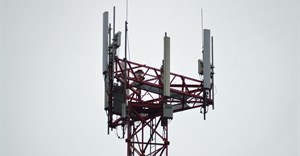Trending
Elections 2024
Jobs
- Creative/Conceptual Copywriter Cape Town
- Sales Consultant Nelspruit
- Copywriter and Content Producer Cape Town
- Marketing Account Executive Johannesburg
- Marketing Manager George
- Senior Digital Marketing Communications Specialist Cape Town
- Marketing Channel Manager George
- Head of Marketing Johannesburg
- Corporate Fundraising Officer Cape Town
- Account Executive Cape Town
ICASA must address spectrum allocation issues - ISPA
Silber said that spectrum allocation is one of the most crucial issues for ICASA to address following a High Court ruling that effectively turns South Africa into one of the most progressive and competitive telecoms markets in the world and opens the industry to more competition.
"The High Court ruling makes it clear that value-added networks (VANS) have had the right to self-provide their own infrastructure since 2005 under the terms of the Telecommunications Act," he said.
"Many VANS will receive electronic communications network service (ECNS) licences by January 2009, but these new networks need access to well-managed interference-free spectrum if they are to roll out their own high-quality wireless network services, rather than just leasing access on existing networks."
ICASA must put a "use it or lose it" regulation in place, said Silber. ICASA has already warned that it is considering the recall of radio spectrum from operators that are not using it - a development that ISPA has welcomed, he added.
“Permanently assigned”
"One concern for us is that ICASA has stated that 80% of the spectrum has already been ‘permanently assigned'. We don't understand why any assignment of spectrum should be considered to be permanent," Silber said.
In Silber's view, a shared spectrum allocation model (also known as "Lite Licencing") is the optimal approach in certain spectrum ranges. This is a proven model which evolved in the US through interaction between wireless network operators (WISPA) and the Federal Communications Commission (FCC).
Lite Licencing is a novel and progressive frequency allocation model where ECNS licensees would pay a relatively small fee for a nationwide, non-exclusive license. The licencees then pay an additional nominal fee for each base station they deploy. All base stations must be clearly identifiable and in the event that these stations cause interference which cannot be mediated by technical means, licensees are required to resolve the dispute between themselves.
"By allowing participants in the market to share, self-regulate and cooperate on interference mitigation, ICASA can ensure that our national spectrum resources are used efficiently and in a manner benefiting the market. The regulator should support new ECNS operators, for they are the smaller, dynamic and entrepreneurial alternative telecoms providers, in touch with the needs of their local communities."
ICASA also needs to keep initial costs such as licencing fees as low as possible to ensure that the barriers to entry are reasonable for new competitors that want to roll out wireless networks.
ISPA is eager to hear the outcome of a request for comment process which ICASA launched into the use of the 5725 - 5875 MHz ISM band. The inquiry, started in 2006, is expected to find that the band should remain licence exempt and that the current EIRP (Effective Isotropically Radiated Power) limitations should be raised from 25mW to 4Watt.
Raised band power limits
In 2007, Ofcom, the UK regulator, raised power limits in this band to 4Watt, supporting a proposal to enable more cost effective services provisioning in rural areas. This allows wireless operators to build directional backbone links of significantly increased distances.
Silber noted that the unlicensed 2.4 GHz and 5.8 GHz industrial, scientific and medical (ISM) bands are likely to come under a great deal of pressure once more wireless network operators start rolling out their networks in 2009. These bands have proven to be a hotbed for innovations such as wireless Internet service provision and Wifi Hotspots.
ICASA and the telecoms industry need to work together to ensure the sustainability of the ISM wireless access services market.



















